|
|
Finding Balance as a Sapphire
What does your day look like?
by Teepa Snow MS, OTR/L
,
FAOTA
What happens when a Sapphire is OUT of balance? Too much work? Too little rest? No time for fun or enjoyment? Only doing a minimum of self-care?
Well, the cool part about being a Sapphire, is that you can get away with it for a short period of time, and still have reserve to call on. The bad news is that the reserve tank does have a limit AND as you approach that limit, you become less and less aware that you are getting to the ABSOLUTE boundary between being in marginal Sapphire mode and the sharp edge of Diamond State! It typically takes a few "Uh Oh!!" experiences when you hit the brick wall or fly off the handle before you become more skillful at recognizing the indicators that you are getting close to that point of not being able to negotiate the U-turn from the edge of Diamond to a Sapphire state.
|
by Mary Lee, CDP
PAC Lead Outreach Coordinator
Support Group Facilitator
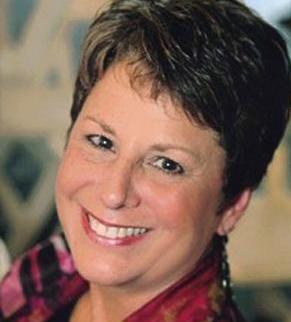
One of the interesting things
about working for PAC, is that the load of offering support to others and being of service, is shared. Every team member has value in their contribution to all that we do. Our contributions are based upon abilities and interests, so no one gets a
free pass
due to an attitude, belief that I can't do that, or it's not my job!
Much like all things in life, you can seek help, you can partner up, you can use technology, or you can struggle for a bit to try something on your own... So, this month, it was my turn to write an article for our monthly Journal. I deci
ded to try it on my own, to create something unique, to write something... and then I found I was coming up blank. It felt like I hit a brick wall in front of me, and I wasn't sure how to get around or over it. So rather than reach out to other PAC team members, I opted to do more research and take a look at what other care partners have said about facing the challenges of FTD and care support.
|
|
The Teepa Intensives
What is going on with these?
by Amanda Snow Bulgarelli
COO and PAC Mentor
**Alert** You must now do
person-centered care but what does that really mean? Teepa's answer to that question was Workshop 1 and 2 of her Knowledge Intensives.
We have spent the first six months of 2018 really working to grow numbers at these events, but to no avail! Our numbers just aren't where we hoped they would be, though the attendees have been so fun and willing to learn and play, we have truly enjoyed these so far. The content, materials, and Teepa are spectacular and the attendees have nothing but great things to say.
|
May We be Well
July Meditation
by Reverend Linn Possell,
PAC Lead Mentor Coach

My mother was diagnosed with young onset FTD in 2006. She has been gone for almost seven years now but the lessons she taught me continue to guide my life. But before I could learn the lessons that she had to teach me, I had to be in a place to receive them. As the Buddha says, "When the student is ready the teacher will appear." How did I make myself ready to learn from my mother? I wasn't conscious of what I was doing, but in the language of PAC I was working to be Sapphire, as I became my mother's advocate and Care Partner.
|
|
Turning the Puzzle Pieces to a Personal Challenge
by Deb LeBlanc
PAC Mentor and Consultant
The role of a PAC Consultant is to help care partners and PLwD (People Living with Dementia) to be good detectives about situations. As a PAC Consultant, I typically use Teepa's sixPieces of the Puzzle tool when I work with care partners and people living with dementia as we consider puzzle pieces help us to gather information in organized, manageable pieces, and to ensure that we can consider the whole picture. I find it is a scaffold that helps keep me, as a consultant, in a Sapphire GEMS state.
Recently, I have been dealing with my own challenging situation. Knowing how powerful the pieces of the puzzle can be, I decided to use them to turn the detective work inward. The following is my journey through each of the six pieces of the puzzle. I hope that this helps illustrate the power available in a tool like this for challenging situations.
|
Summer's here, time for short sleeves!
PAC t-shirts are the way to increase dementia care awareness and look fantastic while doing so! These shirts feature the Positive Approach to Care logo on the front and Teepa's quote, "Until there's a cure, there's care," on the back. Our 100% cotton, unisex t-shirts are available in turquoise, indigo, and military green, in sizes S-XXL.
This July, buy four or more shirts
and get one free!
Use promo code
ODJJULY18 when visiting our
Care Store!
Limit one free t-shirt per order. U.S. and Canada orders only.
|
LifeBio
by Beth Sanders,
Founder & CEO of Life Bio
How do we capture the stories and memories of People Living with Dementia (PLwD)? It's a very good question! I just recently conducted a 30-minute interview with a man diagnosed with Lewy Body Dementia; he knew it was both urgent and important that he record his story before there were barriers to stop him. A few years ago, I was able to record my own grandma, who had been diagnosed with Alzheimers Disease, just as soon as I noticed there was a problem.
Depending on the situation, the Person Living with Dementia can and will share from his or her long-term memories effectively. It's my experience that a person with dementia enjoys engaging, even if all the facts aren't exactly perfect.
|
Lauren with a Side of Lewy
Perspectives of Living with Lewy Body Dementia
by Lauren U, PAC Core Team
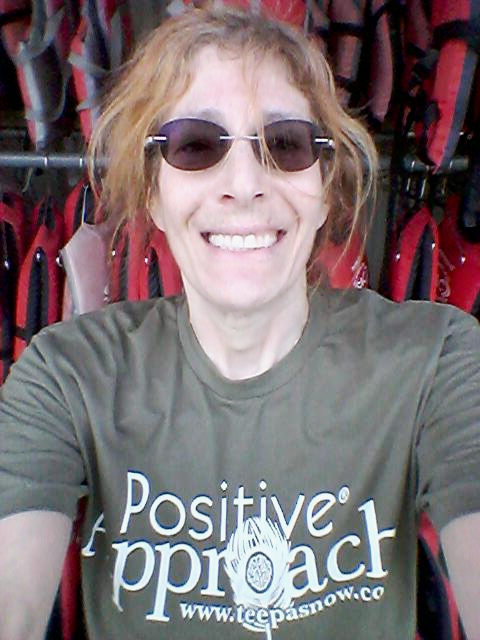
Wow! What a month. I've decided and have been encouraged to strengthen my body and get as healthy as possible. I'm trying to maintain a balanced and nutritious diet. PAC is in my ear and on my conscience if I don't. I've been taken on PAC hikes and walks, into the desert, and even to a small gym. I'll admit it, I find most exercise boring and the
complete opposite of fun, but I do agree that movement is good for the body and the soul.
I have weekly horseback riding with Shannon, my Equine Therapist. Fell once,
injured once. The horse and I both have a need for frolic. It's a good match. I like it. I also went canoeing with a frien
d, no PAC urging necessary.
What else? I jumped out of a plane at 15,000 feet! Yes I did and it was
fantastic! It
was as m
uch fun as I imagined. Adrenaline surge!
|
PAC Client Relationship Director
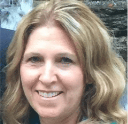
We use GEMS states to describe the levels of
cognitive
ability partly because gems are precious and unique. Those of us who are pet-lovers also feel that our family pets are special and have unique personalities. I have seen
firsthand the value of pet interactions with
those we care for, both in the home and in a facility setting.
Toby, my golden retriever has been a "facility dog" since he was a little puppy! The residents of the facility have seen him grow from a fuzzy four-legged fluff ball, to a 75-pound pal! As he emerged from puppyhood to a young adult dog, it became apparent that he had significant arthritis in several major joints - hips, shoulders, and elbows.
|
|
Become a Champion and Master the Art of Responding, Not Reacting
PAC Champion Courses are coming
to your area
by Dawn Wiggins,
PAC Support Mentor
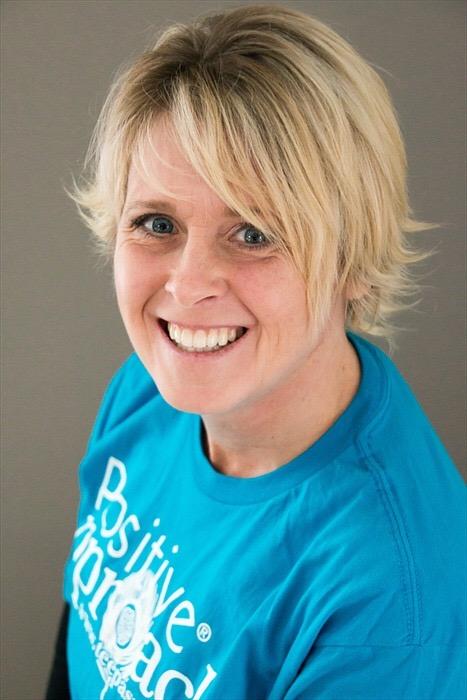 What happens when care partners do not get proper training to support someone living with dementia?
Why are we surprised when staff members become burned out and label unmet needs by making assumptions and not doing an assessment?
Can you think of a time when you had to deal with a responsible behavior and didn't know what to do?
If you could learn how to become more skillful and competent, would you invest in training that teaches you the art of thoughtfully responding to these moments instead of reacting?
Teepa Snow, one of the world's foremost experts in Dementia Care, has developed an intensive, ground-breaking, six-hour course to help you start mastering the art of responding, not reacting! You will learn the skills to become a care partner instead of a care giver, as you support the Person Living with Dementia (PLwD) use the skills they still have while substituting your skill for what has been lost. What happens when care partners do not get proper training to support someone living with dementia?
Why are we surprised when staff members become burned out and label unmet needs by making assumptions and not doing an assessment?
Can you think of a time when you had to deal with a responsible behavior and didn't know what to do?
If you could learn how to become more skillful and competent, would you invest in training that teaches you the art of thoughtfully responding to these moments instead of reacting?
Teepa Snow, one of the world's foremost experts in Dementia Care, has developed an intensive, ground-breaking, six-hour course to help you start mastering the art of responding, not reacting! You will learn the skills to become a care partner instead of a care giver, as you support the Person Living with Dementia (PLwD) use the skills they still have while substituting your skill for what has been lost.
|
|
|
How Music Helps Both Caregivers and Their Care Partners
by Cheryl Khaner,
PAC Licensing Specialist
Did you know that at this very moment, there are 16 million unpaid caregivers tending to the needs of a PLwD (Person Living with Dementia) around the clock and the value of the services that caregivers provide for "free" is estimated to be $375 billion annually?
It is no wonder so many caregivers experience fatigue and burnout.
Caregivers often are so busy caring for others that they tend to neglect their own physical, mental, and spiritual needs. The best way for a caregiver to remain effective is by taking care of him or herself.
So what's an easy, inexpensive and lasting way to alleviate the stressful effects of caregiving?
It's music.
That music creates positive mood and behavior changes is well known. Music is truly a universal medium, so it should come as no surprise that caregivers report the positive effect music has on their care partners and loved ones as they struggle through the difficulties of this disease.
|
Working to Create a Dementia Competent Community
August 1, 2018 - 7pm to 9pm EDT
|
|
Here's What I Know for Sure... Everybody Can Sing
Founder - Singing Heart to Heart
Lois was a quiet woman who often sat in an easy

chair just outside of our song circle. I always invited her to join us, but she would almost always decline. As the singing started I would keep an eye on her to see if there were any songs that she seemed to particularly enjoy. One day I saw her ever so quietly mouth some words to a gospel song. Without making too much of it, because I didn't want to embarrass her or scare her off, I softly commented that she seemed to like that song. I told her, "I would love to have you sing it with us." She replied, "Oh no, I don't sing. My husband told me a long time ago that I was not a good singer and that I shouldn't sing."
Lois' husband had been gone for many years. Lois has dementia and has difficulty remembering many things. But she remembers she is not supposed to sing. Even though her husband is not here to remind her - she continues to believe this.
|
Unique Care Considerations in Frontotemporal Dementia
PAC Support Mentor and Trainer
Caring for someone living with Frontotemporal Degeneration (FTD) can be challenging and unique care considerations must be employed. While FTD falls under the umbrella of dementia, the presentation, symptoms, and implications are quite different than what most family and professional care partners encounter with other forms of dementia, including the most common form of dementia, Alzheimers disease.
|

Looking to attend a PAC Certification in Canada this year? There are still spaces available in the following courses:
August 22-23, 2018
PAC Trainer Certification
Sherwood Park, Alberta
Sponsored by Navigating Dementia and the Early Onset Dementia Alberta Foundation
Enrollment: $1,400 USD (around $1,865 CAD)
October 25-26, 2018
PAC Coach Certification
Penetanguishene, ON
Sponsored by Lakeridge Seniors Residence
Enrollment: $1,600 USD (around $2,131 CAD)
November 20-21, 2018
PAC Coach Certification
Stratford, ON
Sponsored by Spruce Lodge Long Term Care
Enrollment: $1,600 USD (around $2,131 CAD)
Stay tuned for more Certification Courses in Canada announcements in the coming months!
|
|
Alzheimer's: A Love Story
Film Review
Educator, Advocate and Care Partner
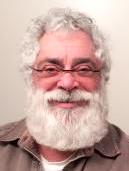
Gregory, my husband of over 41 years, was
diagnosed with dementia, most likely Alzheimers, in the 29th year of our relationship. He was 55 years old. We walked the Dementia/Alzheimers path together for twelve years. He was not a victim of Alzheimers ... but rather a hero. I might add that we lived as well as possible with dementia, refusing to accept the diagnosis as a "death sentence." Also, I never referred to it as his diagnosis but rather our diagnosis.
In some ways, we were relieved when we received the diagnosis because now we had an idea of what we were dealing with; although at the time we did not really understand the nature of the roller coaster ride we would be on for the next twelve years.
|
Crossing Cross-cultural
Boundaries
by Sharon Jackson, BscN
PAC Mentor, Trainer and Coach
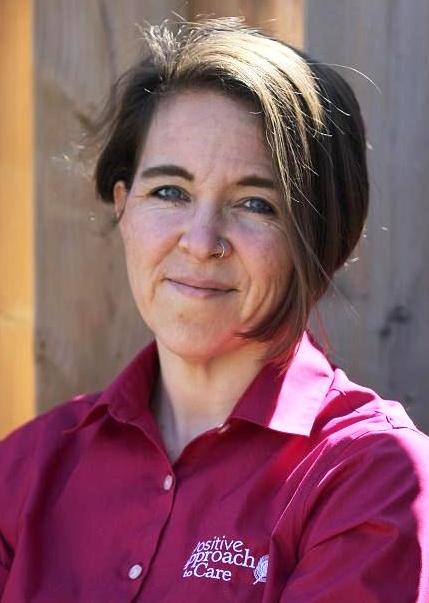 Helping others learn PAC language can be challenging. We have a different way of speaking of dementia, a way that is respectful and supportive of those living with brain changes. But what happens when those we are teaching don't have a firm grasp of the language we are teaching it in. How do we bridge the gap between culture and language when trying to change the way people think and talk about dementia?
|
|
Defining Moments
 My mother, Susan, was diagnosed with Lewy Body Dementia in 2016, and I have the honor of being her care partner. This has, by far, been the hardest thing I've ever had to do in my life. My mother has always been a force to be reckoned with. After surviving 19 years at the cruel, abusive hands of my father, she climbed her way to a six-figure salary with the IRS before she was forced to retire. So, watching my mother, the person I knew could get through anything, lose pieces of herself, is a heartbreak I've never known.
|
|
|
This session focuses on enhancing interaction skills and appreciating the changes that the person living with dementia is experiencing that affect so many aspects of life.
In this session, the five techiniques of getting quickly connected to another person will be applied to each of the GEMS States.
So now what? You used Positive Physical Approach, connected, and now it's time to introduce the agenda. This session will cover the five ways to get things started, explore how you keep it going, and finally, how to finish the interaction, no matter what.
Having looked at frontal lobe and temporal lobe conditions, this session will explore the combination. Traditionally referred to as Picks disease, this combo can create some of the most amygdala driven relationships among people who are involved. In this session, we will discuss insider supportive strategies to help everyone involved optimize safety and well-being while still seeing the person on the other side as valuable.
|
|
Upcoming Events

August 1, 2018
Virtual Event
August 2, 2018
PAC Trainer Certification
Boston, MA
August 7, 2018
Howell, MI
August 8, 2018
Educational Day
Evansville, IN
August, 13, 2018
Teepa's Knowledge Intensive: Workshop 1 & 2
San Diego, CA
August 14, 2018
San Diego, CA
August 16, 2018
PAC Coach Certification
Chelsea, MI
August 27, 2018
Educational Day
Baltimore, MD
August 28, 2018
Educational Day
Carrollton, GA
August, 30, 2018
PAC Trainer Certification
Denver, CO
September 5, 2018
September 6, 2018
Troy, OH
September 7, 2018
Ft Worth, TX
September 11, 2018
Educational Day
Greenville, SC
September 12, 2018
Ask Teepa Anything
Live on Facebook
|

|
|
Now Accepting Submissions
Do you have a story to share?
Your stories help us learn and
grow. We cannot do what we do without you!
This is an open invitation to all people living with dementia, care partners, and professionals.
Contact us
today if you would like to submit an article or video for the
Online Dementia Journal.
|
Book your event today for staff training, family nights, professional referral source events, or refresher workshops
.
|
In the past, we have shared several articles and stories about dogs and people living with dementia. In Scotland, the Alzheimers Society has taken it a bit further and has developed a program to fund the training of service dogs for PLwD.
Wouldn't it be great to have this more available in other parts of the world.
|
Would you like your staff to be able to learn from Teepa Snow, 24/7?
is now offering Teepa Snow programs on its Group Training Website!
Each of your staff members can get their own online video account, with videos selected by you!
Be their "Online Group Leader" and monitor their activity, course completion, and quiz results* (where applicable).
Click below to learn more!
|
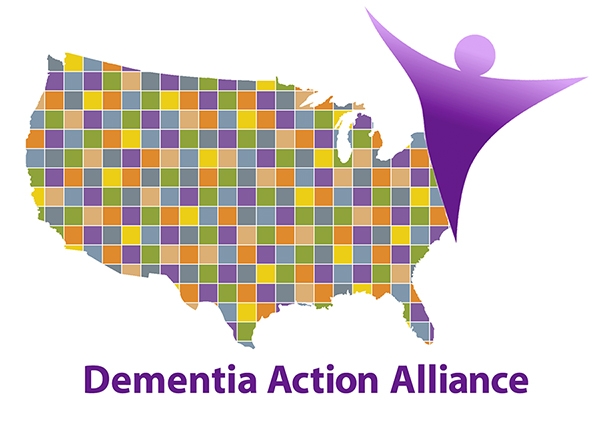
Be Brave Enough To Start A Conversation That Matters
CLICK HERE
To Learn More
About
Caring Conversations
and the
Caring Conversations
Tool Kit
Upcoming Events:
SAVE THE DATE!
Bloomington, IN
|
PAC Training increases awareness, knowledge, and confidence among care staff and educates resident families.
|
Teepa Snow,
Today's Voice for Dementia
Teepa is an advocate for those living with dementia and has made it her personal mission to help families and professionals better understand how it feels to be living with dementia related challenges and change. Her company, Positive Approach, LLC was founded in 2005 and offers education to family and professional care partners all over the world. Her goal? Making a difference...one mind at a time.
|
Click Here to access the
Online Dementia Journal archives!
|
What is a Trainer?
How do you plan on being recognized as a credible source for dementia related training?
The Trainer Certification is designed for individuals who wish to learn to train others in Teepa Snow's Positive Approach® to Care (PAC) philosophy. Trainers provide dementia care awareness, knowledge, and skill development in a classroom, community, or support group setting.
2018 PAC Trainer Dates
Click here to learn more about the PAC Trainer Course
What is a Coach?
"Give a man a fish, he eats for one day. Teach a man to fish, and you feed him for a lifetime."
The PAC Coach course addresses different personality traits and how they affect interaction and behavior. It also focuses on the Positive Approach to Care skills that help to build stronger, more positive relationships with both staff and residents.
2018 PAC Trainer Dates
|
|